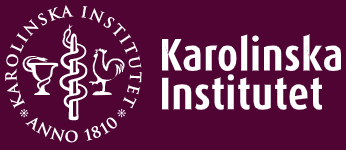Research

Swedish Research Council for Sustainable Development
(2023-2026)
Adapting to temperature extremes in a changing climate: Past trends and future scenarios
Taking Sweden as a case-in-point, this project aims to address the following questions, of key relevance for ensuring a socially just adaptation to future temperatures: (1) which groups are most vulnerable to non-optimal and extreme temperatures? (2) what is the interplay between environmental drivers, societal processes, adaptation strategies and the resulting health impacts? and (3) how can adaptation strategies mitigate the health impacts of plausible future temperatures?
Centre of Excellence on Impacts of Climate Extremes under global change
The Center aims to integrate diverse fields of study—including public health, social sciences, and natural and climate sciences—to explore the impacts of extreme extremes. One of the key objectives is to develop an automated system for gathering data on impacts of climate extremes. This will significantly enhance community adaptation and resilience to climate change.

Swedish Research Council (2024-2028) – co-applicant

Swedish Research Council for Sustainable Development
(2024-2027)
Dynamic Adaptation to Temporally compound hydroclimate Extremes: supporting a sustainable transformation under global changes
This project aims to enhance understanding of temporally compound hydroclimate extremes and identify adaptation actions that promote sustainable transformation. Specific aims include: 1) developing a multi-sectoral impact database of such extremes in Europe ; 2) analyzing (un)sustainable transformation following extreme events through two case studies; 3) proposing a novel system dynamics modelling framework for a system view, and 4) developing scenarios to evaluate public health and societal impacts of future extremes.
Assessing the impact of SARS-CoV-2 infection during pregnancy on women and infant health: from mechanisms to scenarios of a future respiratory virus-related epidemic and preventive strategies
Taking Sweden and England as a case-in-point, this project aims to address the following questions: 1) What are the adverse health outcomes after the delivery associated with SARS-CoV-2 infection during pregnancy? 2) What are the adverse health outcomes associated with intrauterine exposure to SARS-CoV-2 infection in infants? 3) How can preventive strategies mitigate the impacts on women and infant health of a potential future respiratory virus-related pandemic?

Swedish Research Council (2024-2026)

Strategic Research Area Health Care Science (SFO-V) (2025-2026)
Future Scenarios of the Impact of an Unprecedented Heatwave on Maternal Healthcare System in Region Stockholm
This project aims to uncover how societal processes influence adaptation to non-optimal and extreme temperatures leveraging historical data and building future scenarios. This will support practitioners and stakeholders in developing recommendations and adaptation strategies. This award will contribute to data acquisition and will be carried out in collaboration with the Center for Natural Hazards and Disaster Science (CNDS) and Uppsala University.
Adapting to temperature extremes in pregnant women and infants: past trends and future scenarios (PRoMEThEUS)
This project aims to study the vulnerability to non-optimal and extreme temperatures in pregnant women and infants in Sweden; to study the role of adaptation to non-optimal and extreme temperatures on maternal and infant health; to develop scenarios of maternal and infant related health outcomes from plausible future extreme temperatures accounting for socio-political dimensions of adaptation processes.

Swedish Research Council for Health, Working life and Welfare (2024-2028)

Doctoral Network (2026-2029)
ClIMES-DN Understanding and Predicting Impacts of Climate Extremes under Global Change
The PhD student at Karolinska Institutet focuses on the role of climate extremes in modulating the spread and frequency of diseases transmitted by the Culex pipiens (e.g. West Nile Virus), Aedes albopictus, and Aedes aegypti mosquito species (e.g. Dengue) in Africa and Europe. This will be achieved by examining the main climatic and socioeconomic (e.g. age, income and gender) drivers of the spread of vector borne disease.
The impact of air temperature variability on population health in a changing climate: past trends, ongoing adaptation, and future scenarios (AIR-DATES)
Taking Sweden and England as a case-in-point, this project aims to investigate the imapct of air temperature variability on population health in a changing climate.

Swedish Research Council (2026-2030)
2023-2024: Swedish Research Council for Health, Working Life and Welfare (FORTE). Novel risk factors for cardiovascular disease during pregnancy in whole populations in the UK. Total amount (SEK): 2,400,000
2022-2024: Junior Investigator Award for projects at Karolinska Institutet aimed at achieving the UN sustainable development goals. Total amount (SEK): 200,000
2021: CNDS interdisciplinary grant. Total amount (SEK): 69,000
2020: Erik and Edith Fernström Foundation. Total amount (SEK): 70,000
2019 – 2020: KI travel grants. Total amount (SEK): 32,000
2019: Robert Lundberg Memorial Foundation. Total amount (SEK): 25,000
2017: Italian National Council. Total amount (EURO): 12,000

